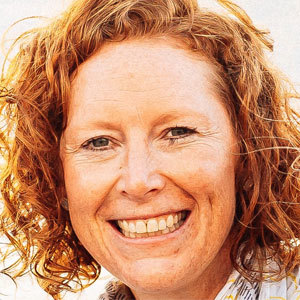Responding to the Refugee Crisis
April 4, 2020 | Alumni, Ministry, Public

Images of three-year-old Alan Kurdi, a Syrian boy who drowned in the Mediterranean attempting to flee to Europe with his parents, shocked the world in 2015. He soon became a symbol of the refugee crisis, and one that resonated worldwide. “Several people came to me and asked, what are we going to do as a church to respond to this global refugee crisis,” says Erin Raska, MDiv ‘09, senior associate pastor at First Presbyterian Church of Wilmette. “People could see themselves in those boats, holding onto their children and their loved ones. The Holy Spirit prompted us to act.”
Stock the Shelves, an initiative that gathers supplies from the affluent North Shore of Chicago and distributes them to the city’s refugee population, was an idea that formed after the church partnered with a resettlement organization in the weeks that followed. “We welcomed two families, one from Sudan and one from Afghanistan,” Raska says. “We knew it was hard to be a refugee, but as we walked alongside the Beshara and Habib families, we learned that even in the United States there are unique challenges that we hadn’t foreseen. For instance, food stamps don’t cover the items refugee families need to lead thriving lives.” Items like toothbrushes, toothpaste, diapers, feminine hygiene products, deodorant, and laundry detergent are all products our culture expects or even requires for a successful life in America — and refugees often don’t have the resources to acquire them.
“There was a large response to this need, both in donations and support, on the North Shore,” Raska says. “Here we have an under-resourced community in need and a well-resourced community that wants to help.” Raska spread the word about what was needed, rented a truck to collect items, and set up a free store in the refugee community. More than 100 families came that day.
Over the years, the program has evolved. Today, Stock the Shelves serves approximately 500 refugees from about 125 families thanks to a broad base of volunteers and a partnership with other congregations (both Jewish and Christian). Once set up in a parking lot, the program now operates out of an indoor space hosted by the Indo-American Center. Fifteen tables are set up by product category, and families select items from each. “They can choose the scent of lotion they like, or the toothbrush color their child wants,” Raska says. “There is agency and empowerment in those choices.”
Raska says this program resonated with her congregation. They wanted to respond to the refugee crisis. They were frustrated with the current political climate. And they wanted to channel their anger into something positive. “It’s about responding to Christ’s invitation to love your neighbor and welcome the stranger,” she says. “This is rooted in God’s love for us and God’s love for the world.”
Learn more at stocktheshelves.org.





